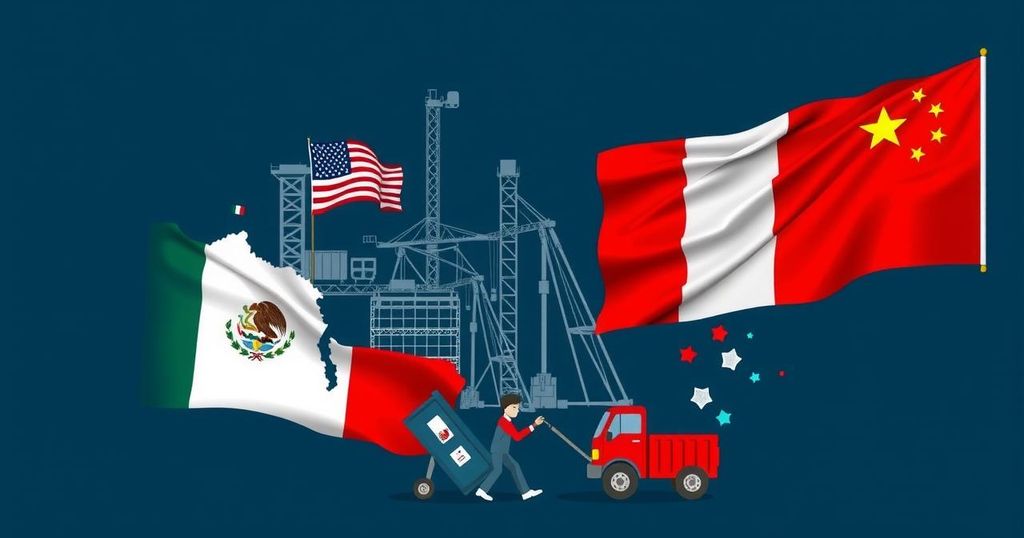President-elect Donald Trump has pledged to impose substantial tariffs on goods from Mexico, Canada, and China beginning on his first day in office. He aims to address issues of illegal immigration and drug trafficking. Economists express concern over the potential inflationary impact and retaliatory trade wars stemming from these tariffs, which echo his previous administration’s policies.
On the first day of his administration, President-elect Donald Trump pledged to impose significant tariffs on goods imported from Mexico, Canada, and China. Citing illegal immigration and drug-related issues, Trump stated that a 25% tariff would be levied on all products entering the United States from Mexico and Canada. He emphasized that this tariff would persist until the flow of illegal drugs, notably fentanyl, ceased. Furthermore, he announced a 10% increase on existing tariffs for Chinese goods until China takes measures to halt illegal drug exports. Trump argued that these tariffs would address what he viewed as a crisis affecting national security and public safety.
Trump’s tariff strategy mirrors his previous administration’s policies aimed at revitalizing domestic manufacturing and generating tax revenue to alleviate the financial shortfall from proposed tax cuts. Tariffs operate as taxes on foreign goods, transferring the financial burden to American firms and consumers. Economists warn that such tariffs can lead to inflation, with estimates indicating a possible annual cost of $2,600 for the average American household. Despite the inflation concerns, Trump’s designated Treasury secretary, Scott Bessent, suggested that careful implementation of tariffs might mitigate inflationary effects, generating optimism on Wall Street.
Historically, Trump’s tariff policies led to retaliatory actions from affected nations, sparking trade tensions that diminished the benefits of increased domestic production. As he prepares for a potential second term, Trump has signaled his intention to escalate tariffs further, proposing rates as high as 60% on Chinese imports, along with broader tariffs ranging from 10% to 20% on all other products. The consequences of these proposed policies on the economy and U.S. consumers are yet to be fully assessed and remain under scrutiny as the situation develops.
The subject of tariffs and trade policy has long been contentious in American economic discourse. Tariffs are typically utilized as tools to protect domestic industries while also serving as sources of government revenue. However, the impact of tariffs extends beyond immediate economic metrics, influencing international relations, consumer prices, and overall economic stability. Trump’s previous presidency saw the introduction of extensive tariffs, particularly targeting China, leading to a series of retaliatory tariffs and escalating trade conflicts that raised concerns among economists regarding their long-term benefits. Understanding the ramifications of these policies is essential for evaluating potential future outcomes as trade dynamics evolve.
In summary, President-elect Donald Trump’s announcement of aggressive tariff increases reflects his administration’s focus on leveraging trade policy to combat illegal immigration and drug trafficking. While these measures aim to protect American interests and boost domestic manufacturing, concerns regarding inflation and retaliatory trade wars could undermine potential gains. As the economic landscape continues to shift, the efficacy and consequences of these proposed tariffs remain pertinent subjects for analysis.
Original Source: www.cnn.com






